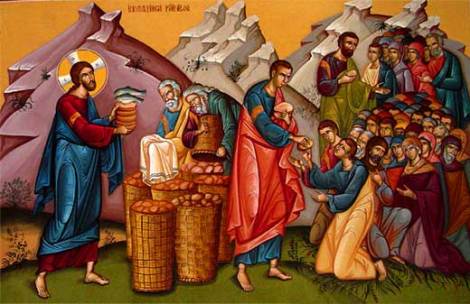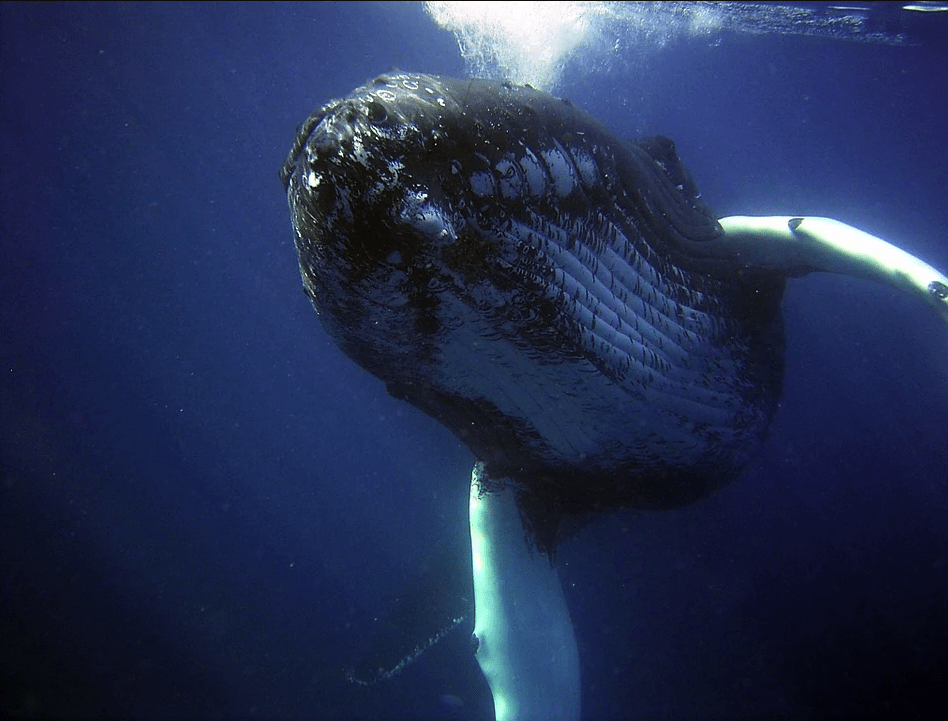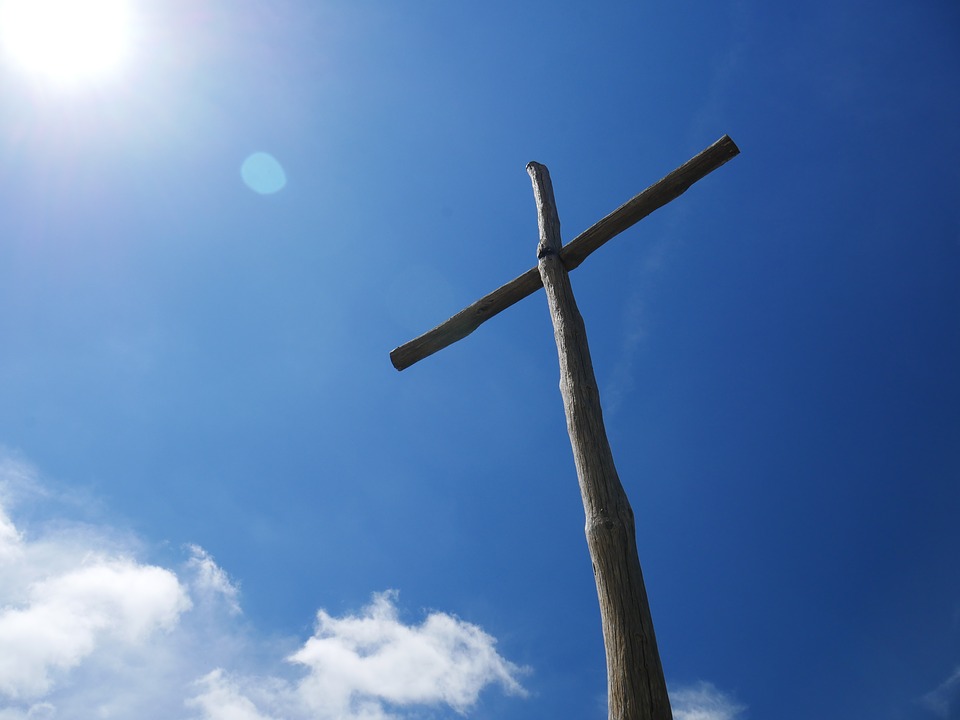
the 21st Sunday after Pentecost
Proper 25
October 25th, 2020
Today’s readings are:
Leviticus 19:1-2, 15-18
Psalm 1
1 Thessalonians 2:1-8
Matthew 22:34-46
If you don’t have a Bible handy, click here for these readings.
There are a few things in life that you just know that you’re going to keep learning about for your whole life. Cooking is one of these things. Now, I like cooking, and I have this nice, happy warm spot in my heart for Italian cooking. I like good meatballs. And there’s no one who makes better meatballs than my dad. He doesn’t do much cooking, but there’s nothing like his meatballs. They’re the perfect consistency, he cooks them just right, like he’s some kind of meatball whisperer or something. You know, I use the same ingredients, I think I keep them cooking for the same amount of time, but they never come out just like his.
But when I tell Dad about his meatballs, these things of joy and glory, and how awesome he is at making them, he laughs and just shakes his head: “Yeah, but Tim, you never had your grandmother’s food. Her food – it was heaven.”
There’s always someone who’s a better cook. There’s always someone who rolls out the bread more skillfully, whose pie crusts are just flaky enough, whose cookies are somehow both moist and crunch at the same time. There’s always someone to look up to, to say, yeah, but if you tried my mom’s cooking, or my uncles barbecue, or my cousin’s pot pie, then you’d know what it means to cook. Then you’d see what cooking is really about. It’s like a miracle. I have a long way to go until I can cook like that.
There’s a depth to things in life. There’s a path to our hobbies, our skills, our great enjoyments, our relationships, and that path doesn’t lead to a nice, comfy house around the corner but just keeps going, over the hills and along the sea. It’s a humbling thing to think of, but also a really good thing. I remember talking to a friend who was into running and who had just run a marathon. I complimented him, and he shook his head and smiled this eager smile: “Yeah, but I think I can do better. I think I can run better.” There’s depth there, there’s humility there, there’s yearning and eagerness even as we see the road before us.
Now, love is another one of these things that we’re always learning about. We are never perfect at love. I remember, back when Helene and I got married, someone told us that the marriage ceremony was not the consummation but the very beginning of learning what it means to love another person. And when Helene was pregnant with Gwendolyn down in Sewanee, one of the priests there, who was a mother herself, told us excitedly that, when her first child was born, she was filled with more love than she had ever felt possible. And I remember thinking just this when my children were born, too. We are always learning more about how to love.
How do we learn more about how to love? I’ve mentioned a few: getting married, having children, and there’s those friendships that we have a nurture that teach us so much of love. Or keeping pets, and those things that a dog or a cat can teach us about devotion, loyalty, and dedication. There are so many things in our lives that teach us to love more fully, more deeply, and with more hope.
But we are also taught in other ways as well. For the call to love can be a challenge, and that challenge can test everything that we are and think ourselves to be. It’s very nice to love our neighbors as ourselves when our neighbors keep to their own business, but sometimes our neighbors are our enemies. And yet we are called to pray for them and to love them as well, as we heard in our reading from Leviticus this morning.
We are challenged when we are asked to love our enemies. We are challenged when we try and love things that we think are unlovable. And we’re challenged not because praying for our enemies is something hard to do, as if it were like some chores that you need to get done but you really don’t want to, or as if it were your math homework back in school, fifty questions repeating the same, tired work over and over again.
Loving our enemies is a challenge because, though it, we see that love is more than just liking things that are good. If love were just to revel in good, nice, happy things, love would be easy. We’d spend our time around our kids or grandkids, we’d enjoy the beach or a nice drive, a good dinner and a good night sleep, and we’d be done with it. But we know from good things like marriage that, sometimes, we learn more about love when we’re in an argument with our spouse, or when our kids come home and say, “Dad, I crashed the car.” We learn more about love when we’re forced to see people we think aren’t worth a dime as people, as human beings, as children of God just as we are children of God.
And we have as our model for love Jesus Christ – and not just Jesus who healed or who gave us those beautiful graces of the Eucharist and Baptism. No, our model of love in Jesus is Jesus on the cross, who had been reviled, whipped, spat on, beaten down, hated, and nailed to a piece of wood, , and yet he said, “Father, forgive them.” We learn about love from those words. For Jesus was not just nailed to the cross and that’s the end of the story. But in that love, through that love Jesus had for us, through his passion, death, and his resurrection, we were all granted the path to everlasting life. That love, that hard love of the cross, that eternal love that overcame all hatred, malice, and evil, that is the love that saved us. That is the true image of love.
We learn about love from loving. Sometimes we learn through loving meatballs, other times we learn through loving when love doesn’t seem to have a place. But we Christians, we are people of love, of dedication, and of hope. Love is always appropriate. Love is always right. That love might look different in different circumstances, but it is always love that we should have at the center of our being, for Jesus Christ is at the center of our being.
Our culture needs some love right now. And I hope, after hearing this sermon, you don’t mistake me for saying that we need some slap-happy, easy-going, kind and gentle sort of love. We need an honest love. We need a love that challenges us. We need a love that doesn’t see our enemies as combatants or opponents, but as human beings, as children of God just as we are. We need to love the truth and to speak it, and to speak that truth, which is the Gospel, boldly, but always, always, always in love. We need to be love, as Jesus was love upon the cross, as Jesus was love when he came to our own hearts, so wracked with sin and malice, but brought us to hope and glory nevertheless. We are called to love beyond the boundaries of this world; we are called to love forever.




